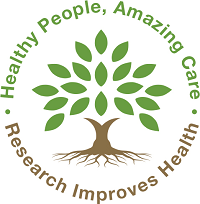Governance Information and Tips
All human research conducted at WA Health sites must undergo a site-specific assessment (SSA), which is the mechanism for professional, legal and financial accountability and transparency. The SSA is conducted by the sites Research Governance (RG) office, ensuring that all human research complies with the NHMRC’s Australian Code for the Responsible Conduct of Research 2018.
Review of the SSA is a governance process separate from ethical and scientific review and can be conducted in parallel with the ethics approval process. It is not necessary to await the ethics review outcome before preparing and submitting an SSA Form.
Researchers must complete an SSA Form (or Access Request) for each site involved in the research. SSA and Access Request forms are prepared and submitted via the RGS.
- Upon submission, the forms are reviewed by an EMHS Research Governance Officer (RGO) to ensure EMHS meets its obligations for the effective governance of research involving humans, including compliance with relevant policies and legislation and having all necessary legal agreements in place.
- EMHS retains the right to not authorise a research project at its sites, even if the project has ethical approval and/or site authorisation at other institutions.
Research Governance Framework
The WA Health Research Governance Framework governs the scientific, ethical and site governance review and approval as well as the conduct and monitoring of human research within WA public health organisations.
The policy and procedures apply to both WA Health employees and non-WA Health employees (including clinical and non-clinical university academics) who propose to undertake, manage, review and govern human research involving patients, their tissue or data accessed through WA Health.
Preparing a research budget
All research projects conducted in WA Health must have a budget that accounts for the project's costs and allocates funding to cover those costs. Funding can be monetary (actual dollars) or 'in-kind' through an allocation of staff or other resources; however, there must be a source of funding attached to all costs, including staff time and consumables.
Many researchers find completing a project budget challenging. WA Health offers a number of presentations and resources to assist:
- RGS Budget Form Presentation October 2017
- Budgets for Conducting Research in WA Health handout Nov 2016
- Site Specific Assessment (SSA) Budget Workshop Feb 2016
Clinical Trial Registration
Trial registration involves posting the details of a trial’s design, conduct and administration on a publicly accessible database known as a clinical trial registry. The National Statement obligates researchers to ensure that their clinical trial is registered in a publicly accessible database before recruitment of the first participant.
The Declaration of Helsinki now also states that “every clinical trial must be registered in a publicly accessible database before recruitment of the first subject.”
The International Committee of Medical Journal Editors (ICMJE), which includes many of the world’s leading journals, has a policy requiring trial registration prior to publication. In 2004, the ICMJE declared that they would not consider a trial for publication without evidence that it had been registered in a publicly accessible clinical trials registry prior to enrolment of the first participant.
Trial registration is also important for participant recruitment because it allows people interested in participating in a clinical trial to search for relevant clinical trials on a single website. Registration also assists health professionals to identify relevant trials for their patients.
Researchers should register trials as early as possible and ensure information such as contact details and trial status is kept up to date.


